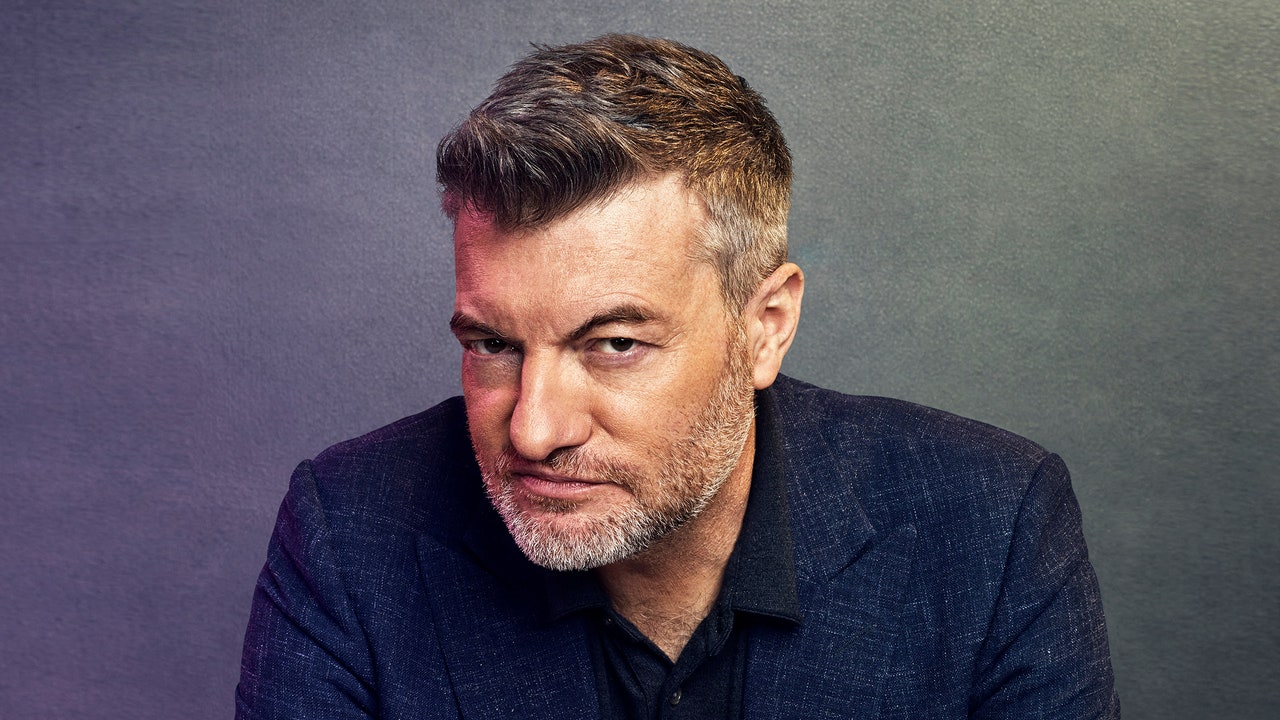[ad_1]

By the end of the pandemic, Charlie Brooker had almost run out of murderers.
Like a lot of people, the creator and writer of Black Mirror spent much of the Covid-19 lockdown “hoovering up one true-crime documentary after another.” By the time things returned to something like normal, he’d exhausted his supply of moody, atmospheric six-parters about ghastly killings and had come up with an idea for a new episode of his darkly funny, scarily prescient, and hugely popular Netflix anthology series.
“Loch Henry”—set in moody, atmospheric Scotland—is the second episode of the sixth season of Black Mirror, which returns to screens tomorrow after a four-year break. Inspired by Brooker’s true-crime binge, it’s about the uncomfortable nature of turning atrocities into entertainment. “While you’re watching it, you think, ‘I’m watching some real art here,’” he says. “But you are still there to rubberneck at the scene of a crime.”
If Black Mirror’s success has been predicated on its living up to the promise of the title—a glimpse of our true selves reflected back at us from the glossy surfaces of our smartphones—this season does something different. It turns the camera on itself, and the content machine.
In “Mazey Day,” we meet a young celebrity hounded by the paparazzi in early 2000s Los Angeles (inspired by a documentary Brooker watched about Britney Spears). In “Beyond the Sea,” starring Aaron Paul and Josh Hartnett, a distant astronaut pays the ultimate price for public acclaim. And in “Demon 79”—a blood-drenched horror tale billed as the first “Red Mirror” episode—a smooth-talking politician manipulates the media to spread his message of hate.
“Joan Is Awful,” the standout episode of the new season, follows an ordinary, only moderately awful woman who finds that her real life is being turned into a slick television show starring Salma Hayek offered on “Streamberry”’—a very thinly veiled Netflix analogue. It was partly inspired by The Dropout, the prestige drama about Elizabeth Holmes and the Theranos scandal. Brooker was struck, watching Amanda Seyfried’s portrayal of Holmes, how recent the events being depicted seemed and how weird it must have been for the real people involved. “You had all these celebrities playing people who must be sitting at home watching this,” he says.
The episode is Black Mirror at its acerbic best: nipping at the hand that feeds, skewering the readiness with which people’s lives are turned into content, with or without their permission. “It’s designed to keep the viewer in a state of mesmerized horror,” says the Streamberry CEO at one point in the episode. “It’s great for engagement.”
[ad_2]
Source link
